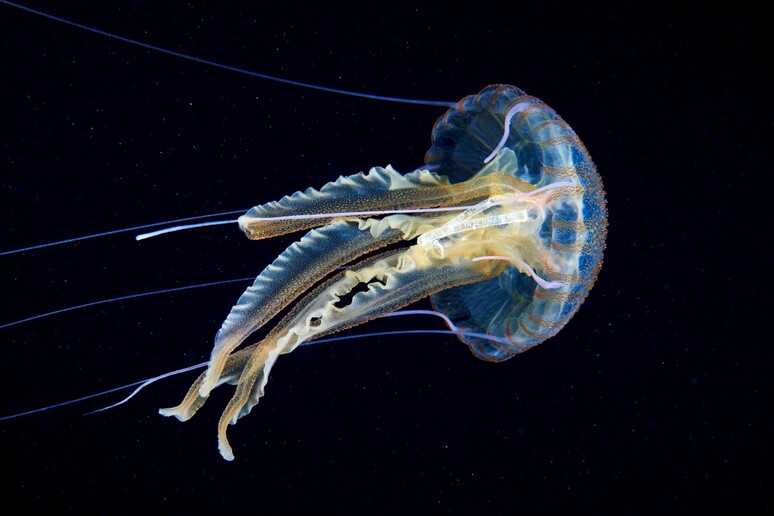(ANSAmed) - ROME, AUGUST 2 - An Italian study recently published in the journal Nature Scientific Reports showed for the first time that jellyfish eat plastic fragments suspended in the water.
The study was conducted by researchers at the University of Siena together with colleagues from Tuscia University, with broad international collaboration.
It demonstrated the presence of plastic waste in the jellyfish species it analysed, which included the Pelagia noctiluca, a species that is widespread in the Mediterranean.
The study took jellyfish samples from an area near the island of Ponza that has a "plastic vortex," an area where a buildup of marine waste has accumulated due to the convergence of surface currents.
It showed in particular that the jellyfish are an "unexpected" target of sea plastics and that their contamination, with fragments larger than one centimetre, poses further concerns for the entire marine food chain.
Jellyfish make up a considerable portion of the diet of large vertebrates, such as turtles and fish, including species used for commercial purposes, such as tuna and swordfish.(ANSAmed).
ALL RIGHTS RESERVED © Copyright ANSA











